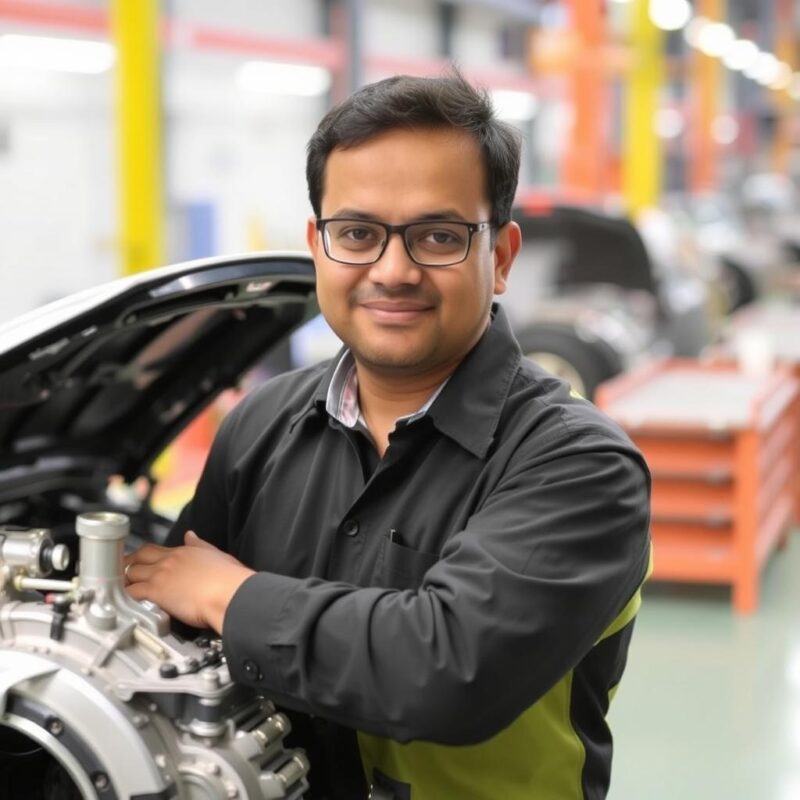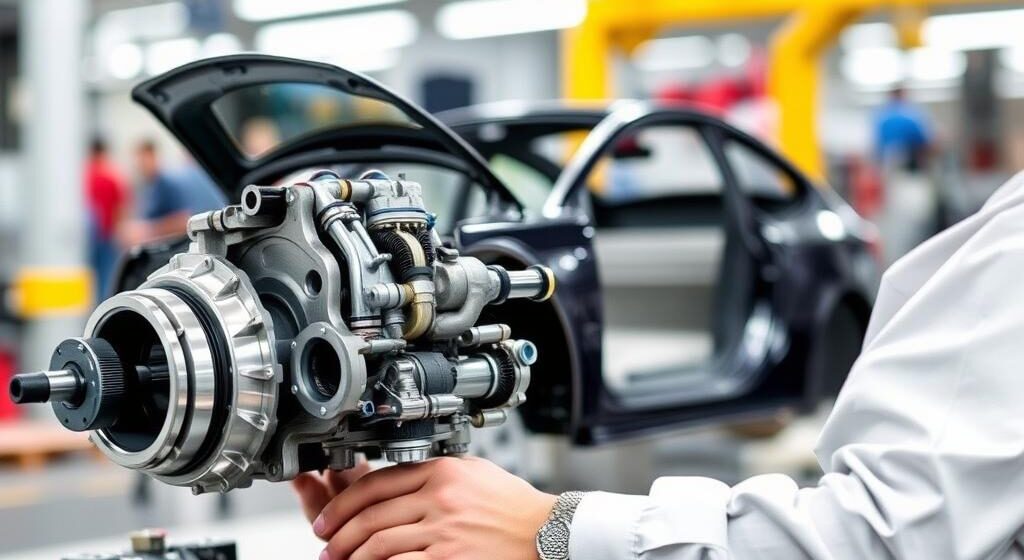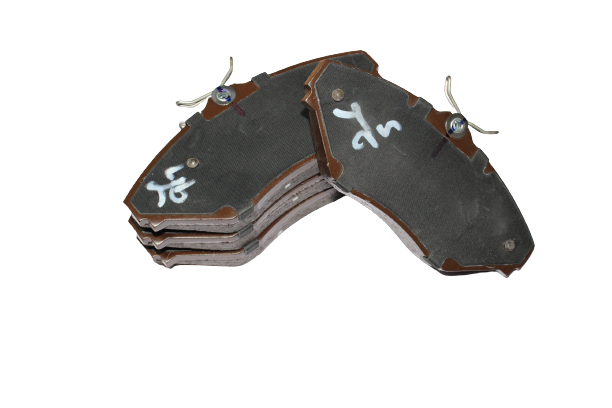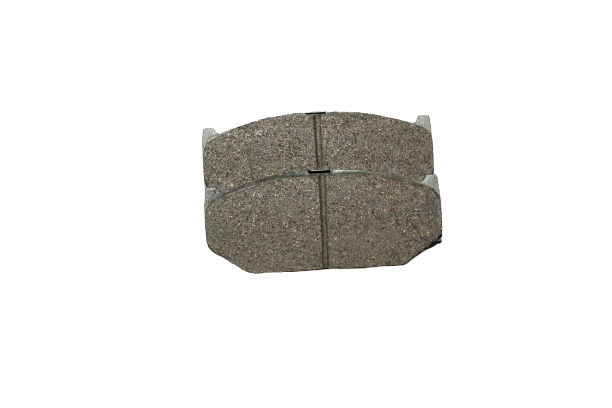The Future of Auto Parts Manufacturing in India: Trends and Innovations
India’s auto parts manufacturing industry is a crucial part of the country’s automotive sector, contributing significantly to the overall economy. With the rise of global and domestic demand, technological advancements, and environmental concerns, the future of auto parts manufacturing in India is set to undergo major transformations. This blog explores the key trends and innovations shaping the industry and what the future holds for India’s auto parts manufacturers.
1. Growing Focus on Electric Vehicle (EV) Components
As electric vehicles (EVs) continue to gain momentum globally and in India, the demand for specialized EV components is expected to skyrocket. Unlike traditional internal combustion engine (ICE) vehicles, EVs require specific parts such as electric motors, batteries, power control systems, and regenerative braking systems.
Innovations in EV Auto Parts:
- Advanced Battery Technology: Indian manufacturers are investing heavily in battery technology, focusing on lithium-ion, solid-state batteries, and even hydrogen fuel cells to improve efficiency, range, and charging times.
- Lightweight Materials: To optimize EV performance and extend battery life, the use of lightweight materials such as aluminum, composites, and carbon fiber in auto parts will become increasingly important.
As India moves toward its electric mobility goals, manufacturers will need to shift their focus toward producing high-quality EV components that can meet the evolving needs of the market.
2. Digitalization and Industry 4.0
The rise of Industry 4.0 is bringing digital transformation to the forefront of the auto parts manufacturing industry. This fourth industrial revolution focuses on the integration of advanced technologies such as automation, artificial intelligence (AI), the Internet of Things (IoT), and data analytics into manufacturing processes.
Key Trends in Digitalization:
- Smart Factories: Indian auto parts manufacturers are increasingly adopting automation and robotics to streamline production, reduce errors, and improve efficiency. AI-driven predictive maintenance and real-time monitoring are helping companies reduce downtime and increase output.
- 3D Printing: Additive manufacturing, or 3D printing, is gaining traction as a way to create complex, customized auto parts with less material waste. It allows for rapid prototyping, faster product development, and on-demand production.
- Supply Chain Digitization: With the use of IoT and blockchain technology, auto parts manufacturers can now track inventory, optimize supply chains, and ensure transparency across the entire production process.
By embracing these digital innovations, India’s auto parts manufacturers can enhance their competitiveness on the global stage and cater to the increasing demand for high-tech automotive solutions.
3. Green Manufacturing and Sustainability
As environmental concerns grow, the Indian government and the global automotive industry are pushing for more sustainable and eco-friendly manufacturing practices. Auto parts manufacturers are increasingly adopting green manufacturing technologies to reduce their carbon footprint and comply with stricter environmental regulations.
Sustainable Manufacturing Practices:
- Energy-Efficient Processes: Manufacturers are investing in energy-efficient production techniques, such as using renewable energy sources, optimizing energy consumption, and reducing waste generation during the production process.
- Eco-Friendly Materials: The use of biodegradable materials and sustainable alternatives like bio-plastics and recycled metals is becoming a priority for manufacturers looking to reduce their environmental impact.
- Circular Economy: The future of auto parts manufacturing in India may also be shaped by the adoption of circular economy principles. This involves reusing, refurbishing, and recycling materials to create a closed-loop system that minimizes waste and maximizes resource efficiency.
These sustainability efforts not only help manufacturers align with global environmental goals but also cater to the growing consumer demand for greener, more sustainable automotive products.
4. Shift Toward Localization and Global Supply Chains
The COVID-19 pandemic disrupted global supply chains, leading to a renewed focus on localization in the Indian auto parts industry. As companies look to reduce their dependence on imports and build more resilient supply chains, India is becoming a hub for auto parts manufacturing on both a local and global scale.
Localization and Export Opportunities:
- Make in India: Government initiatives like “Make in India” are encouraging local manufacturing, with incentives for companies to invest in domestic production facilities. This has spurred growth in the auto parts sector, with many global automotive giants now sourcing components from Indian suppliers.
- Expanding Export Market: India’s auto parts industry is increasingly exporting components to countries in Europe, North America, and Asia. As quality standards continue to improve, Indian manufacturers are positioned to become key players in the global supply chain for automotive parts.
This shift toward localization, combined with increasing exports, is paving the way for India to strengthen its position in the global automotive ecosystem.
5. Advanced Materials and Lightweighting
As fuel efficiency and performance become top priorities for automakers, the demand for lightweight auto parts is on the rise. Indian manufacturers are embracing advanced materials that not only reduce vehicle weight but also improve durability and performance.
Lightweight Innovations:
- Aluminum and Magnesium Alloys: These lightweight metals are increasingly used in structural components, such as engine parts, suspension systems, and body frames, to enhance fuel efficiency.
- Composite Materials: Carbon fiber-reinforced plastics (CFRP) and other composite materials are becoming popular due to their high strength-to-weight ratio, making them ideal for high-performance applications in electric and hybrid vehicles.
By investing in lightweight technologies, Indian auto parts manufacturers can help automakers meet stricter fuel efficiency and emission standards while improving overall vehicle performance.
6. Enhanced Safety and ADAS Technologies
As safety regulations evolve and consumer expectations for vehicle safety increase, there is growing demand for advanced driver assistance systems (ADAS) and safety components. Auto parts manufacturers in India are responding by developing cutting-edge technologies that enhance vehicle safety.
Key Safety Innovations:
- ADAS Components: From radar sensors and cameras to collision avoidance systems, Indian manufacturers produce critical components for ADAS systems that enhance driver safety.
- Smart Sensors: The integration of smart sensors for real-time vehicle diagnostics and predictive maintenance is improving vehicle safety by identifying potential issues before they lead to critical failures.
- Autonomous Vehicle Components: With the global push toward autonomous driving, Indian manufacturers are investing in research and development to produce key components for self-driving cars, such as sensors, control systems, and AI-driven algorithms.
The development of these safety and ADAS technologies will play a significant role in shaping the future of auto parts manufacturing in India, making vehicles safer and more reliable.

Conclusion
The future of auto parts manufacturing in India is bright, with technological advancements, government support, and a focus on sustainability driving innovation in the sector. From electric vehicle components and digitalization to green manufacturing practices and advanced materials, Indian manufacturers are at the forefront of revolutionizing the global automotive industry.
As these trends and innovations evolve, India is poised to become a major player in the global auto parts market, offering high-quality, cost-effective solutions for the world’s leading automakers.
At BharatAutoSolution, we are committed to staying ahead of these trends by offering cutting-edge auto parts that meet the needs of modern vehicles. Whether you’re looking for traditional parts or innovative solutions for electric and hybrid cars, our extensive range of products is designed to keep your vehicle performing at its best.




